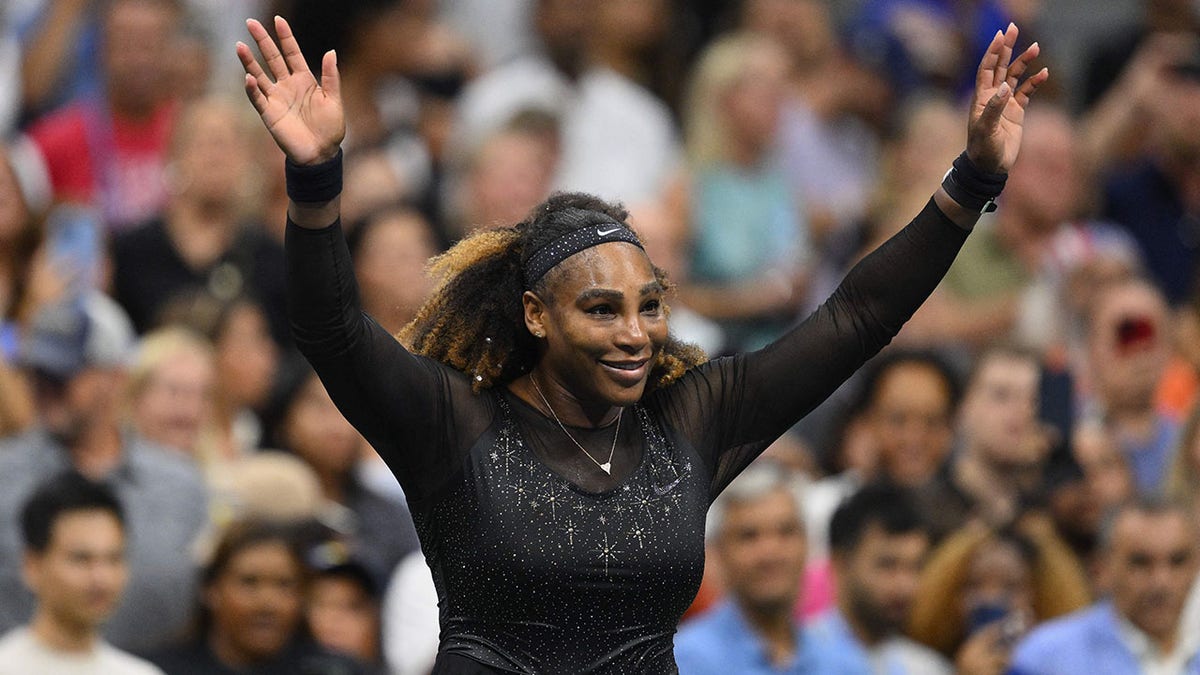Fox News Flash top headlines for September 6
Fox News Flash top headlines are here. Check out what's clicking on Foxnews.com.
Margaret Court, regarded as one of the greatest tennis players in history with her record 24 Grand Slam titles, says she has been iced out from the tennis community and despite her admiration for greats like Serena Williams, she believes the same respect is not often returned.
In a rare interview with The Telegraph, the 80-year-old Australian tennis star defended her accomplishments following Williams third-round exit from what will likely be her final U.S. Open.

Serena Williams celebrates her win against Estonia's Anett Kontaveit during the U.S. Open at the USTA Billie Jean King National Tennis Center in New York, on Aug. 31, 2022. (Angela Weiss/AFP)
"Serena, I’ve admired her as a player," Court told the outlet. "But I don’t think she has ever admired me."
US OPEN 2022: SERENA WILLIAMS FALLS IN THIRD ROUND, CAPPING OFF ILLUSTRIOUS CAREER
Court, whose record still stands over Williams’ 23 titles, noted that her wins were earned in a shorter length of time – despite critics who discredit it in comparison because she earned most of them during the amateur era.
"Serena has played seven years more than I did," she said. "I finished in my early 30s. People forget that I took two years out. I first retired, like Ash Barty, when I was 25, thinking I would never return to tennis. I got married, had a baby, but then had one of my best years, winning 24 out of 25 tournaments."

Margaret Court looks on during a Tennis Hall of Fame ceremony at the Australian Open on Jan. 28, 2020, in Melbourne. (Morgan Hancock/Getty Images)
"I came back after two babies!" she continued. "After having the first baby, I won three out of the four slams. And Serena hasn’t won a slam since."
Court also argued that the sport during her time was far more difficult than the tennis of today.
CLICK HERE FOR MORE SPORTS COVERAGE ON FOXNEWS.COM
"I would love to have played in this era – I think it’s so much easier," she told The Telegraph. "How I would love to have taken family or friends along with me. But I couldn’t, I had to go on my own or with the national team. People don’t see all that. As amateurs, we had to play every week, because we didn’t have any money. Now, they can take off whenever they want, fly back whenever they want."
"We would be away for 10 months. That’s why I first retired in 1965, because I used to get homesick. You might be with the odd other person, but it’s not like having your family there. We didn’t have psychologists or coaches with us. It’s a whole different world. That’s what disappoints me – that players today don’t honor the past of the game."

Margaret Court in action at the Wimbledon Tennis Championships July 9, 1973. (Evening Standard/Getty Images)
Court, who became a Pentecostal Christian minister in 1990s, said she believes she has been essentially shunned from the tennis community because of her beliefs, including her opposition to same-sex marriage in Australia.
"It’s very sad, because a lot of the press and television today, particularly in tennis, don’t want to mention my name," she said. "It’s only when they have to, because I still hold so many records."
CLICK HERE TO GET THE FOX NEWS APP
"In 2020, I was meant to be coming to Wimbledon for the 50th anniversary of my calendar grand slam. But then COVID hit, so the honor never happened. The French Open didn’t invite me, the U.S. Open didn’t invite me. Rod Laver had won the slam, and I was going to be honored in the same way, but no. I didn’t lose any sleep over it. But the honor has not been there for what I did do. In my own nation, I have been given titles, but they would still rather not mention me."
Court took one final dig at Williams, saying she did not appreciate her seemingly disregarding her opponent, Australian Ajla Tomljanovic, in what could likely be her final match.
"I thought it was bad that Williams didn’t mention her opponent more when she spoke," she says. "We were taught to be role models for the young, in how we behaved. We were taught to honor our opponent. You learned from your losses. We respected one another."

